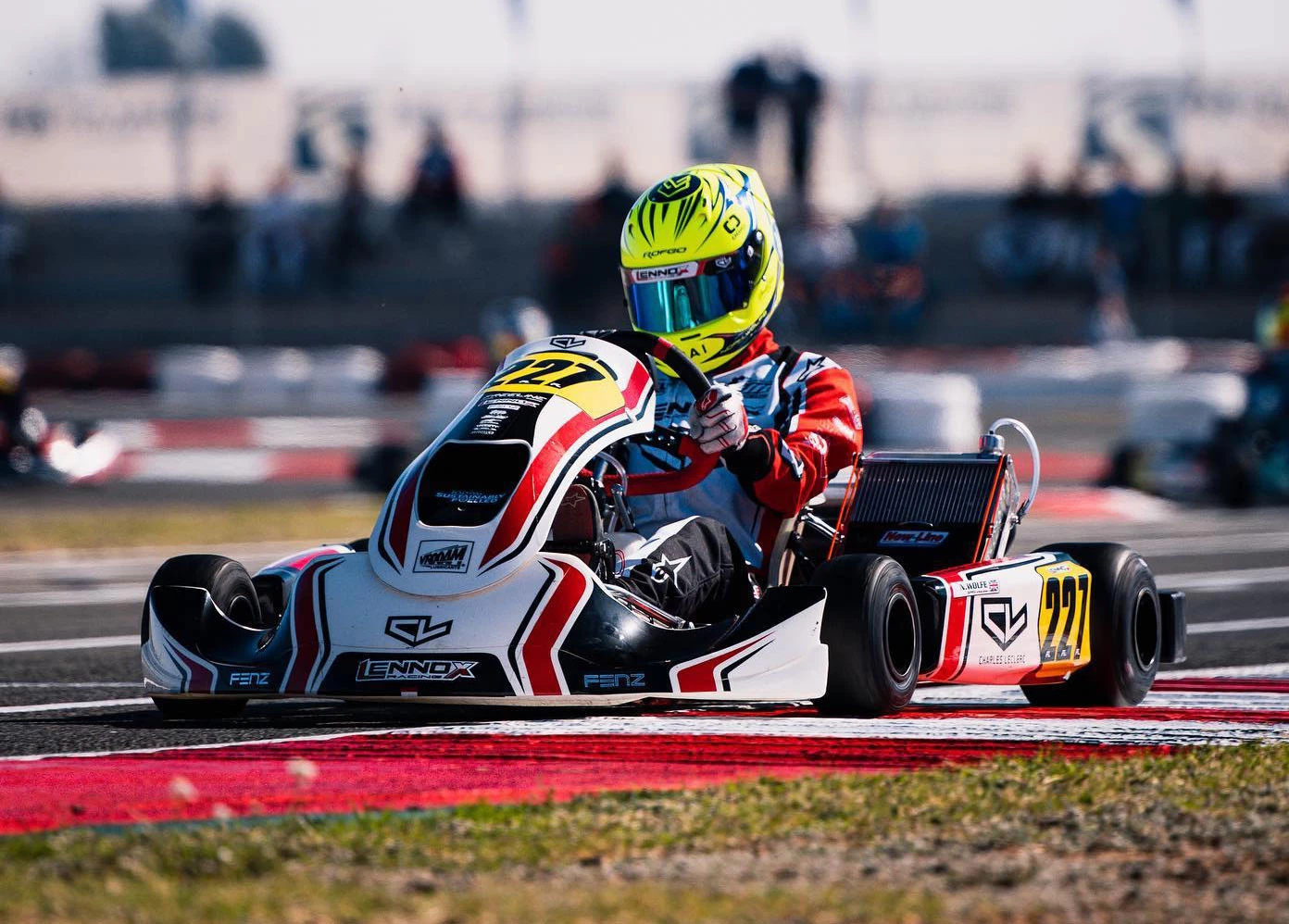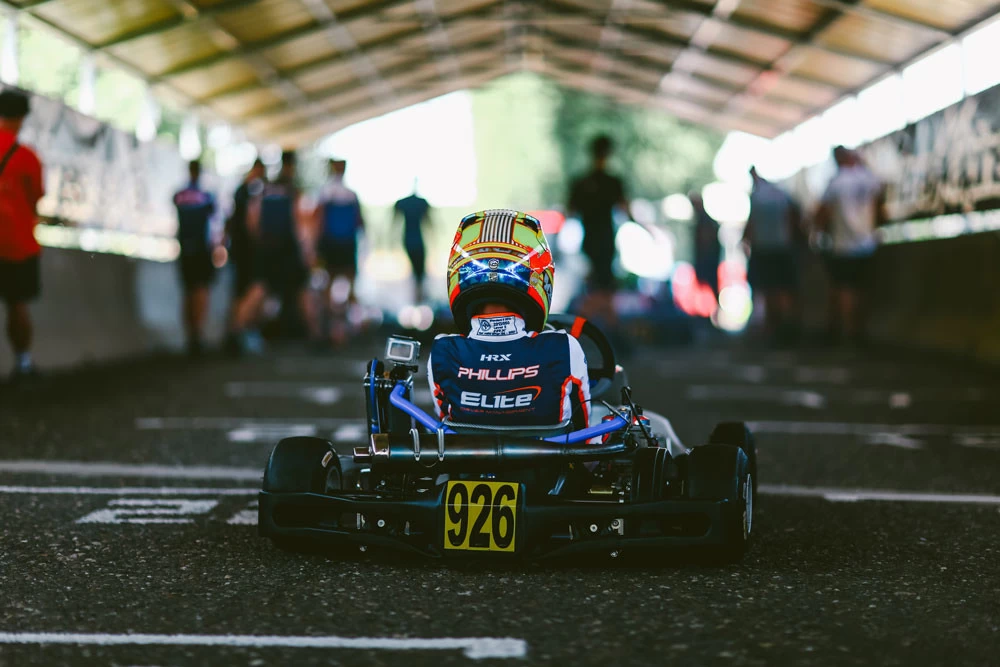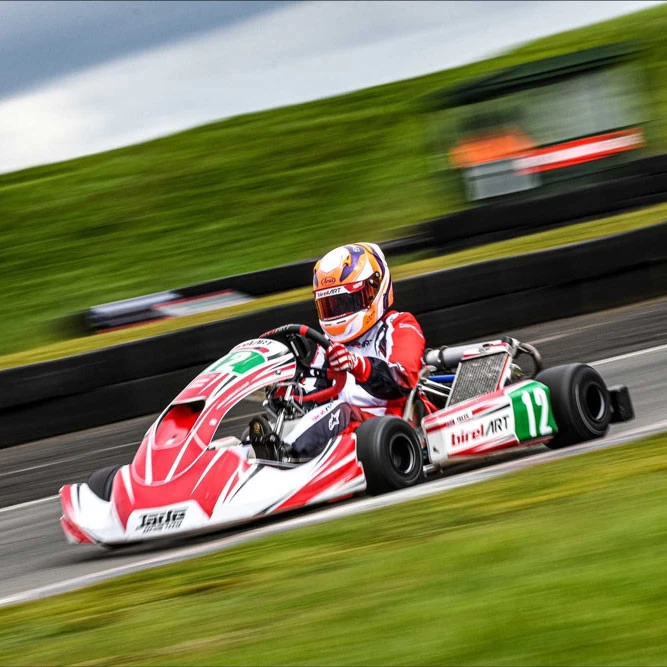Research based Physical Training

With most karting competitions being made up of multiple Heats before a Final, it is paramount that each karter has high levels of aerobic capability (fitness) and strength, not only to perform, but also to recover optimally.
It has been shown that a karters heart rate can average at around 85% of max for each Heat or Race. This added up over the course of a highly competitive race weekend can cause high levels of fatigue and drop in performance.

A karters neck can be exposed to G-Force of above 2.2g.
This equates to the helmet pulling on the neck equivalent to a 9.9kg weight on high G cornering, acceleration, braking etc. This accumulative load can be huge over a heat, race, or complete weekend.

This simple analysis shows that karting is an extremely physically demanding sport which requires specific and structured training for a karting athlete to perform at their best.

If you would like more information regarding our new 2024 Karting Athlete Development programme, please get in touch.
Physical Training Structure
What’s included?
- Tier based long term athletic development curriculum spanning from pre-foundation athletes (7yrs+) through to elite level karters making the transition into car racing.
- Options for online training (which allows for training to be delivered worldwide) and/or App based programming sent directly to the parent or karters smart phone.
- 1 to 1 or group based sessions. Maximum of 5 karters in any group (perfect for teams) which keeps each karters individual contact time high.
- To progress up through the tier system each karter will be assessed on their individual abilities by one of the KAD team.
- Training sessions incorporate strength, balance, co-ordination, stability, agility, rhythm & conditioning components.
- Karting specific training such as age and ability appropriate neck and trunk training and pre-drive warm-ups.
- An assessment of progress is taken every 8 weeks and a report of this is sent to parents or appropriate adult.

